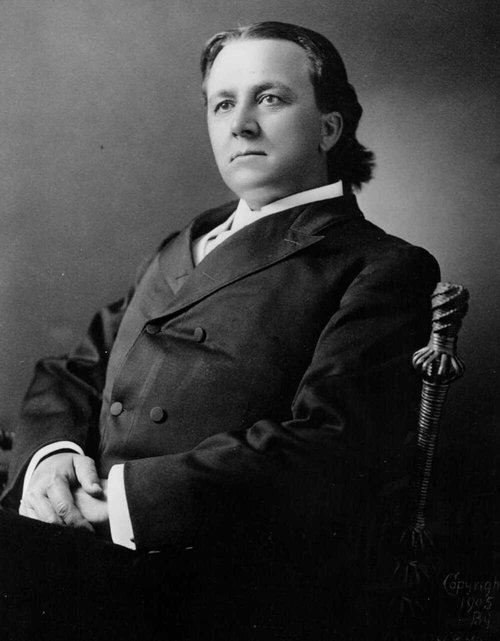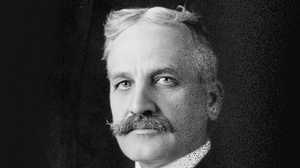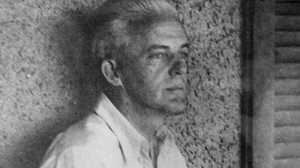James K. Vardaman
Elected Governor of Mississippi in 1903, James K. Vardaman rode to power on a wave of white populism and racist politics.

Elected Governor of Mississippi in 1903, James K. Vardaman rode to power on a wave of white populism and racist politics. Dressed in white suits and sporting flowing black hair that reached down to his shoulders, Vardaman was an imposing figure. Bold and charismatic, he could command any room with his masterful oration. At first the Delta elite supported Vardaman, because they approved of his levee board appointments. But it was soon evident that their interests clashed.
While Delta planters like LeRoy Percy were busy working to attract and keep African American laborers in Mississippi, their efforts were out of sync with the atmosphere in the rest of the state. Vardaman, a master at manipulating racial hatred for his own political gain, tapped into a groundswell of popular support for white supremacy and began championing the cause.
Vardaman denounced the education of African Americans as "a positive unkindness that renders him unfit for the work which the white man has prescribed him and which he will be forced to perform." On the nature of African Americans, he publicly stated that they were, "lazy, lying, lustful animal[s], which no amount of training can transform into a tolerable citizen." At the time, his sentiments were well received in many segments of the white community.
Vardaman once went so far as to declare, "if it is necessary every Negro in the state will be lynched; it will be done to maintain white supremacy." For Delta planters, statements of that sort threatened financial ruin. If lynchings in the state dramatically increased, planters feared a swift exodus of African American labor from the Delta and an end to the economic prosperity the landowners enjoyed.
In 1910, when Anselm J. McLaurin, a U. S. Senator from Mississippi, died in office, Vardaman was poised to claim the vacant seat and bring his views to the national stage. LeRoy Percy, who had always operated behind the scenes, set out to publicly defeat him and the politics he promoted. Through a series of ingenious back-room gambits, Percy managed to outsmart Vardaman and maneuver himself into the Senate seat instead. His goal accomplished, Percy enjoyed great popularity in the Senate, but not in his home state. Vardaman enjoyed vast support in the Mississippi hill country and in the central part of the state, where many found Percy pompous, condescending and elitist. Poor white residents deeply resented the plantation system and Percy's power and wealth.
When Percy ran for reelection, Vardaman knew just how to beat him. He capitalized on populist animosity towards Percy and the landed aristocracy of the Delta, and the voters responded to his message. Vardaman supporters came out in full force, and Percy was crushed in the election. Vardaman won 74 out of the 75 counties in Mississippi in a landslide victory that signaled the end of the Delta patrician's control of the state.







